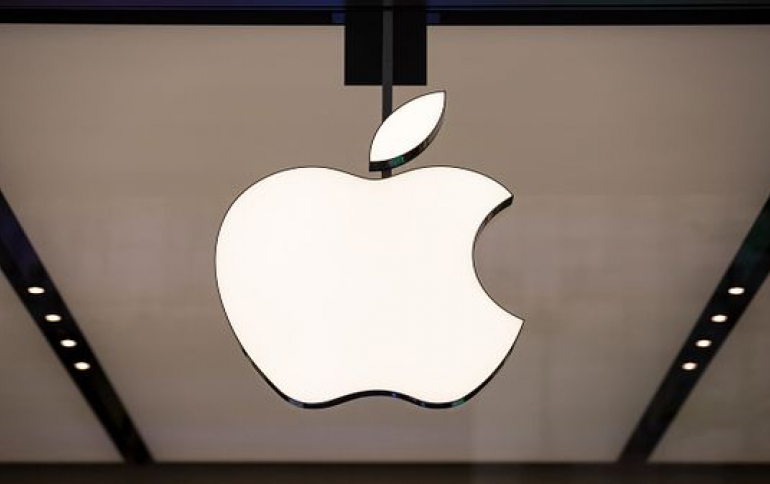
Apple Also Outlined Data Requests
Apple received as many as 5,000 requests for customer information from U.S. law enforcement authorities amid widening revelations of government data collection.
Microsoft and Facebook published similar data last week after reaching a deal about disclosures with U.S. national security authorities.
"Like several other companies, we have asked the U.S. government for permission to report how many requests we receive related to national security and how we handle them," Apple said in the statement. "We have been authorized to share some of that data, and we are providing it here in the interest of transparency."
From December 1, 2012 to May 31, 2013, Apple received between 4,000 and 5,000 requests from U.S. law enforcement for customer data. Between 9,000 and 10,000 accounts or devices were specified in those requests, which came from federal, state and local authorities and included both criminal investigations and national security matters, Apple said. The most common form of request comes from police investigating robberies and other crimes, searching for missing children, trying to locate a patient with Alzheimer?s disease, or hoping to prevent a suicide.
Apple added that its legal team evaluated each request and, only if appropriate, Apple retrieved and
delivered information to the authorities. "Apple has always placed a priority on protecting our customers' personal data, and we don't collect or maintain a mountain of personal details about our customers in the first place," the company said.
Conversations over the iMessage and FaceTime functions are protected by end-to-end encryption, which means only the sender and receiver can see or read them, and Apple can?t decrypt the data, the company said.
The role of technology companies has come under scrutiny since Edward Snowden, a computer technician who did work for the National Security Agency, disclosed this month that the NSA is collecting data under a U.S. government program code-named PRISM. PRISM gathers e-mails, videos and other private data of foreign surveillance targets through arrangements that vary by company, overseen by a secret panel of judges, according to slides provided by Snowden to the Guardian and Washington Post newspapers.
"Like several other companies, we have asked the U.S. government for permission to report how many requests we receive related to national security and how we handle them," Apple said in the statement. "We have been authorized to share some of that data, and we are providing it here in the interest of transparency."
From December 1, 2012 to May 31, 2013, Apple received between 4,000 and 5,000 requests from U.S. law enforcement for customer data. Between 9,000 and 10,000 accounts or devices were specified in those requests, which came from federal, state and local authorities and included both criminal investigations and national security matters, Apple said. The most common form of request comes from police investigating robberies and other crimes, searching for missing children, trying to locate a patient with Alzheimer?s disease, or hoping to prevent a suicide.
Apple added that its legal team evaluated each request and, only if appropriate, Apple retrieved and
delivered information to the authorities. "Apple has always placed a priority on protecting our customers' personal data, and we don't collect or maintain a mountain of personal details about our customers in the first place," the company said.
Conversations over the iMessage and FaceTime functions are protected by end-to-end encryption, which means only the sender and receiver can see or read them, and Apple can?t decrypt the data, the company said.
The role of technology companies has come under scrutiny since Edward Snowden, a computer technician who did work for the National Security Agency, disclosed this month that the NSA is collecting data under a U.S. government program code-named PRISM. PRISM gathers e-mails, videos and other private data of foreign surveillance targets through arrangements that vary by company, overseen by a secret panel of judges, according to slides provided by Snowden to the Guardian and Washington Post newspapers.





















